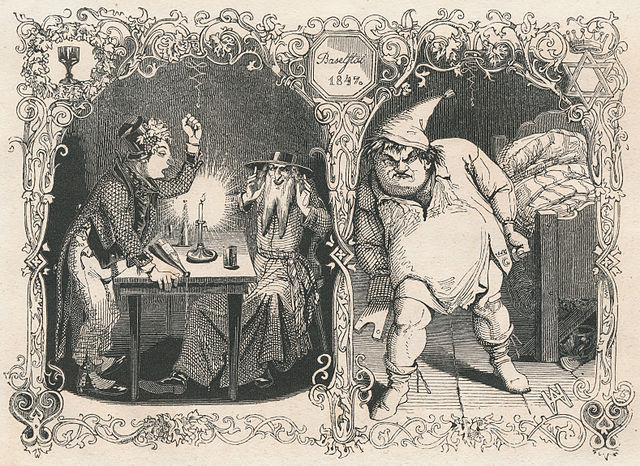 aNewDomain — Marketed as pro-privacy reform of the rancid Patriot Act, the USA Freedom Act is about to become law. Though nothing could be further from the truth, many Americans will believe that the NSA is being reined in, and move on another issue.
aNewDomain — Marketed as pro-privacy reform of the rancid Patriot Act, the USA Freedom Act is about to become law. Though nothing could be further from the truth, many Americans will believe that the NSA is being reined in, and move on another issue.
The Freedom Act has been characterized as another vindication of Edward Snowden — and, considering the fact that we wouldn’t be discussing the balance between individual privacy rights and national security if he hadn’t made the NSA’s spying against us public, it is.
We’re also being told that the Freedom Act will protect us from the NSA.
It won’t. It absolutely won’t.
“This is more than symbolic,” said Georgia Tech professor Peter Swire, who worked on an Obama task force that studied NSA surveillance in the wake of the Snowden revelations.
No. It isn’t more than symbolic, though.
Symbolic is exactly what the Freedom Act is.
As The New York Times reports, most of the fascism-lite Patriot Act will remain in force under the Freedom Act:
“ … only three provisions that temporarily expired Monday are now at issue, two of which have apparently been used only rarely.”
The Freedom Act mainly affects the collection of “telephony metadata”: times of phone calls, the numbers you called and were called from, how long you were on the phone, where you were, etc.
Telephony metadata is the tip of the iceberg.
Will Your Computer Camera Spy on You?
Programs like Gumfish, through which NSA agents turn on Americans’ computer cameras to spy on them at their homes — and take photos of them nude and/or while having sex— are unaffected. So are programs like Mystic, which records and stores the voice recordings of your calls for at least five years. As I write in my upcoming biography of Snowden, so remain many, many of the NSA’s Orwellian assaults on decency and personal freedoms.
Within the narrow sphere of telephony metadata, the Freedom Act creates one major reform: “it would take the government out of the business of bulk collection of telephone and Internet data like the numbers, times and duration of phone calls, leaving that information in the hands of telecommunications companies instead. But the government would still have the power to systematically gain access to the data in order to analyze indirect links between callers, just as it had under the old program.”
How exactly will the NSA “systematically gain access” to metadata under the Freedom Act? It will file a request with the FISA (Foreign Intelligence Surveillance Act) court.
Which will always say yes.
The FISA Court, which never hears from privacy advocates or a lawyer for the victim being targeted, is a rubber stamp for the government. It approves every request for spying on Americans:It did so 1856 times out of 1856 in 2012, for example. In 2011, it approved 1674 out of 1674. In 2010, 1506 out of 1506.
You get the picture.
The NSA will still get your metadata. They’ll just have to file some paperwork to get it.
The Freedom Act sucks.
What should Congress have done instead?
If an individual were breaking as many laws as the NSA, he’d face life in prison, or execution. If a corporation — one that wasn’t politically connected — were breaking as many laws, its directors would be prosecuted and it would be shut down. The bar for government conduct should be at least as high as for you and me.
As we’ve learned from Snowden, the NSA is a rogue agency.
An NSA Shutdown
Here’s what would fix the problem: the NSA should be shut down. Its top officials, and those of its affiliated private contracting firms, should be imprisoned. So should every public official who approved their disgusting espionage against us.
What about the terrorists? Don’t worry; we’ll still be safe. There is no evidence — zero — that the NSA has disrupted a single plot against the United States since 9/11.
Even by the incremental standards of contemporary reform, the Freedom Act is some ridiculously weak tea.
Meaningful reform would have taken the NSA out of the spying-on-Americans business entirely. After all, that’s what their charter requires. They’re only supposed to spy on foreign “signals intelligence.” Overseas. Not here.
Significant reform would have shut down all of the programs revealed by Snowden, including Mystic and Gumfish and the like.
The Freedom Act leaves us with empty symbolism.
At bare minimum, the NSA should have to apply for a search warrant from a real federal court — as opposed to the joke that is the FISA court — when it wants the phone company to turn over your telephony metadata.
“In legislation no bread is often better than half a loaf,” the progressive Robert La Follette observed a century ago. “Half a loaf, as a rule, dulls the appetite, and destroys the keenness of interest in attaining the full loaf.” With the Freedom Act, Americans are being asked to settle for a crumb.
For aNewDomain, I’m Ted Rall.
Featured Image: “Vergissmeinnicht 1849 Spindler – Baselstab 1847” by Xylographie: A. Hohenstein / Scan: Christoph Waghubinger (Lewenstein) – Carl Spindler: Vergißmeinnicht. Taschenbuch der Liebe, der Freundschaft und dem Familienleben des deutschen Volkes gewidmet. Für das Jahr 1849. Stuttgart: Franckh’scher Verlag. Beitrag: Der Sechs und Vierziger. Xylographie zwischen S. 36 und 37 (eigener Scan). Licensed under Public Domain via Wikimedia Commons.













